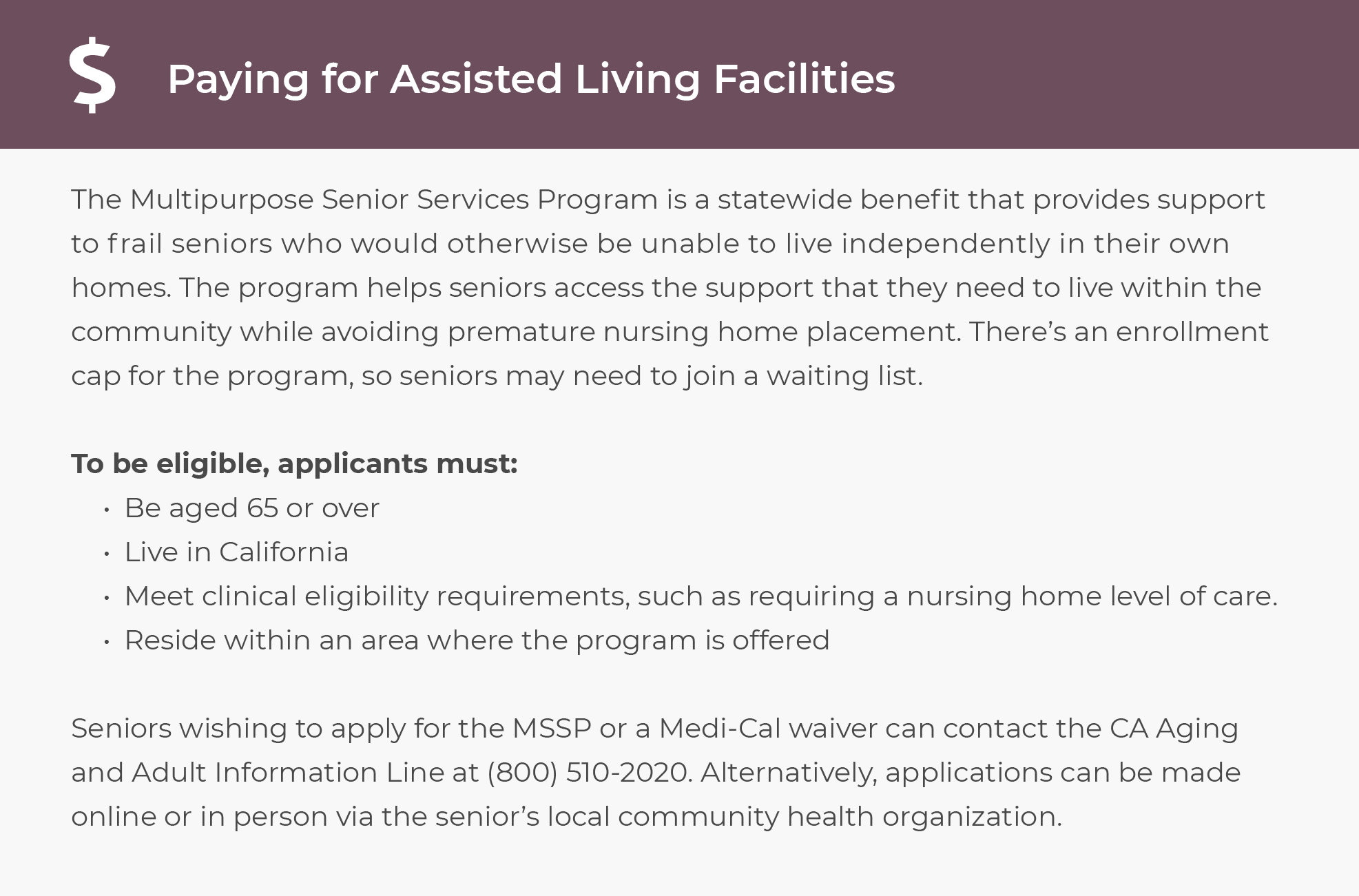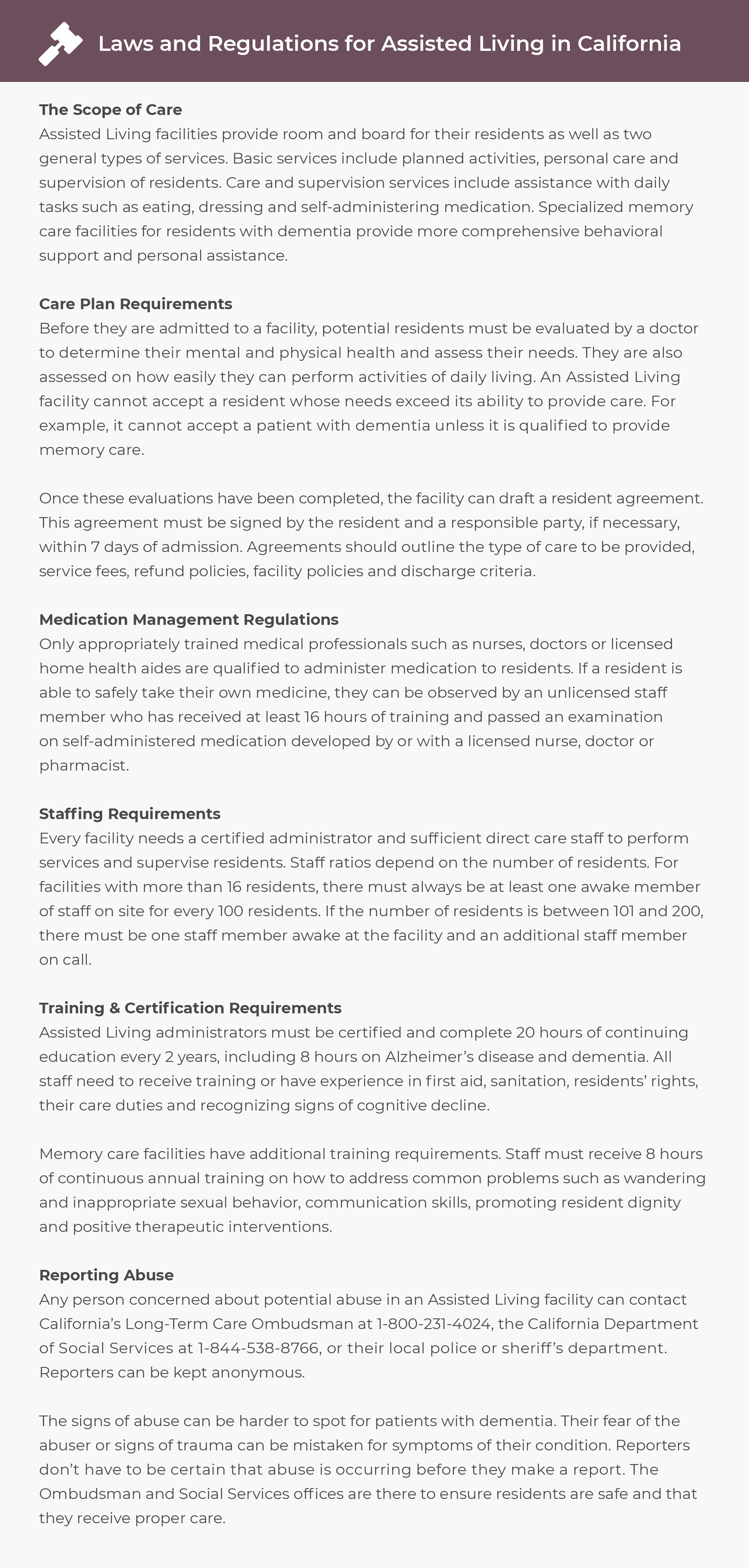Los Angeles is the second-most populous city in the nation and the most populous city in California. Of its nearly 4 million residents, about 13% are retirement-aged. While the local cost of living is high compared to most California cities, seniors can access programs, including the Medi-Cal Assisted Living Waiver, to help them afford retirement expenses.
Assisted living is a prime option for older adults who would benefit from daily assistance with activities, such as cleaning, personal grooming and meal preparation, but don’t need around-the-clock medical services. These residential facilities provide a full range of services based on the individual’s care plan, along with amenities, such as fitness centers, libraries and full-service beauty salons. On average, assisted living services in Los Angeles cost $5,250 per month although fees may vary depending on location and amenities.
This guide provides more information on the costs of assisted living in Los Angeles and popular options for financial assistance with monthly fees. It also outlines the general rules that facilities follow to ensure a high standard of care for all residents.
Hundreds of thousands of American seniors utilize assisted living, a figure that is only growing. For these seniors, assisted living combines residential housing,assistance in daily activities, and some healthcare. These communities also strive to provide an atmosphere that is comfortable and engaging for their residents… Read More >
COVID-19 restrictions and rules for Assisted Living Facilities are typically set by the state – to see the rules in your state, you can read our guide to Assisted Living in California. Keep in mind that there may be other policies that communities put in place to protect their residents, so you should contact your local community for more information. Additionally, you can contact your local Area Agency on Aging to learn more – find contact information here.
The 2021 Genworth Cost of Care Survey shows that seniors in Los Angeles pay around $5,250 per month for assisted living services.
The costs of assisted living in Los Angeles are equal to the state median, but exceed the national average of $4,500 by several hundred dollars.
Compared to the rest of California, Los Angeles is a moderately affordable option for obtaining residential care. The city is more affordable than Santa Rosa, where care costs are the highest surveyed in the state at $7,048. In Napa, seniors pay $6,300 for services and in Oxnard, rates come in at $5,750. Assisted living facilities in San Diego charge $5,475 while in San Luis Obispo, rates are lower at $5,300. Seniors find comparatively affordable care in Chico, where facilities charge $5,106. In Visalia, assisted living rates are among the lowest in the state at $3,450.

Since not everyone can afford to pay for assisted living out-of-pocket, it’s important to find alternative methods to help make assisted living more affordable. Some of these options include:
For more information about your options for making assisted living more affordable, visit our guide to Assisted Living in California.
|
Resource |
Contact |
Service |
|
(888) 211-0644 |
WDACS is the Area Agency on Aging for Los Angeles seniors. This agency provides free and low-cost services to meet the needs of older residents, including transportation services, wellness services, options counseling and information and referrals. It also administers the Traditional Legal Assistance Program, which helps those aged 60 and over access public benefits and services. | |
|
(213) 383-4519 |
The Center for Health Care Rights administers HICAP, the statewide Medicare assistance program. Through HICAP, seniors get free, confidential assistance with understanding their Medicare benefits and choosing private Medicare plans that fit their needs and budgets. The center can also help individuals determine whether they qualify for Medicaid and the Medi-Cal Assisted Living Waiver, which can help them pay for residential long-term care. | |
|
(800) 399-4529 |
The Legal Aid Foundation of Los Angeles specializes in helping older adults resolve a range of age-related issues, such as long-term care planning, understanding assisted living contracts, applying for public benefits and resolving consumer debt problems. | |
|
(800) 698-2411 |
The VA Los Angeles Regional Office provides benefits assistance to older veterans and their dependents. It has options counselors who screen individuals for eligibility for programs that may pay for assisted living services, including Aid and Attendance and disability compensation, and it helps individuals connect with community-based programs. | |
|
(213) 482-7252 |
The city’s Department of Aging operates senior centers and congregate meal sites to help older adults build relationships and obtain community-based services. Senior centers host social and recreational activities, such as special interest classes, dancing, discussion groups, book clubs and games. Hours of operation and rules regarding membership fees vary by location. | |
|
(323) 224-6510 |
L.A. Works provides volunteer opportunities to those aged 55 and over through RSVP, a nationwide volunteer program exclusively for older adults. With RSVP, seniors can serve their communities in various capacities, including mentoring, teaching skills or hobby classes and sharing knowledge in libraries and museums throughout the region. Participants get free placement services and on-the-job training, as well as benefits, such as mileage reimbursement and invitations to annual recognition dinners. | |
|
(323) 808-7433 |
Cityride provides low cost ride-sharing for older adults unable to use the public bus system. Through this program, seniors get demand-response transportation services for medical appointments, errands and recreational outings to supplement the scheduled transportation services assisted living facilities provide. |
Assisted Living Facilities in the Los Angeles area are required to follow a set of rules and regulations that are determined at the state level. For an overview of those rules and regulations, see the information below. For more specific information, talk with your local community or Area Agency on Aging.





























